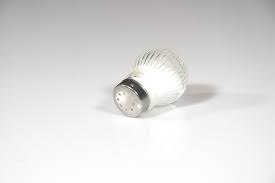 Parler
Parler Gab
Gab
- A bipartisan group of California lawmakers introduced Assembly Bill (AB) 1264 on March 19, aiming to phase out ultra-processed foods (UPFs) like pizza, chips and sugary drinks from public school meals by 2032. The bill, led by Assemblyman Jesse Gabriel (D-District 46), addresses concerns about the impact of these foods on children’s physical and mental health.
- These foods packed with chemical additives and high-fructose corn syrup are linked to obesity, diabetes, heart disease and mental health issues like anxiety and depression. Research shows they are engineered to be addictive, particularly harmful to children’s developing brains.
- The bill directs California's Office of Environmental Health Hazard Assessment, in collaboration with University of California experts, to identify harmful ultra-processed foods containing banned or restricted additives. These foods would be phased out starting in 2028, with a complete ban by 2032.
- The bill has bipartisan backing, with Republican Leader James Gallagher (R-District 3) and Progressive Caucus Chair Alex Lee (D-District 24) as co-authors. California already provides free breakfast and lunch to K-12 students, but the quality of meals varies, with some schools still serving unhealthy options like Domino's pizza.
- Critics argue the bill could limit food choices and exacerbate health disparities, while proponents emphasize the urgent need to address childhood obesity and addiction to unhealthy foods. The bill aims to set a new standard for school nutrition, prioritizing fresh, minimally processed ingredients and potentially inspiring nationwide change.
AB 1264 sets new standard for school nutrition
What makes this bill unique is its bipartisan support. Assembly Republican Leader James Gallagher (R-District 3) and Progressive Caucus Chair Alex Lee (D-District 24) are among the co-authors, proving that when it comes to children’s health, party lines can be crossed. Gallagher emphasized the urgency of the issue, pointing to the obesity epidemic among children and the need for schools to provide healthier options. The push for healthier school meals is not new in California. The state already guarantees free breakfast and lunch for all K-12 public school students, serving about one billion meals annually. However, the quality of those meals has come under scrutiny. While some schools have made strides—like the Morgan Hill Unified School District, which reduced sugar intake by 34 pounds per student last year—others still serve items like Domino’s pizza, much to the dismay of health-conscious parents. Critics of the bill, including the Consumer Brands Association, argue that restricting ultra-processed foods could limit choice and exacerbate health disparities. However, proponents of the bill counter that the health risks far outweigh these concerns. Dr. Ashley Gearhardt, a psychology professor at the University of Michigan, has studied the addictive nature of UPFs. She explains that these products hijack the brain's reward system, making it difficult for people to stop eating them. This is especially concerning for children, whose developing brains are more susceptible to addiction. The stakes are high. Without intervention, experts predict that nearly three out of five children in the U.S. will be obese by the time they reach 35. Gabriel, who has already championed two landmark food safety laws in California, believes this bill is a critical step toward protecting children's health. Watch this clip from Fox News about Robert F. Kennedy Jr. assuming the role of health secretary and chairman of the Make America Healthy Again Commission. This video is from the NewsClips channel on Brighteon.com.More related stories:
Attention RFK Jr. and Trump: A great start to MAHA – HEAVILY TAX canola oil, aspartame, MSG and high fructose corn syrup so junk food becomes expensive. Junk food is a cheap drug: Research explores the link between income, obesity, and psychological distress. Junk food triggers a type of addiction that unleashes withdrawal symptoms when you try to quit. Sources include: EpochTimes.com NBCNews.com ABC7News.com Brighteon.comL.A.’s rebuilding nightmare: Only 4 permits issued after fire destroys 6,000 homes
By Cassie B. // Share
BPA: The hidden hormone disruptor sabotaging your health — and how to fight back
By Willow Tohi // Share
PROCESSED TABLE SALT in foods found to fuel depression
By S.D. Wells // Share
By Lance D Johnson // Share
Smartphone overuse in childhood fuels teen depression and anxiety, landmark study finds
By Cassie B. // Share
Soybeans: The ancient superfood powering modern diets
By Laura Harris // Share
Governments continue to obscure COVID-19 vaccine data amid rising concerns over excess deaths
By patricklewis // Share
Tech giant Microsoft backs EXTINCTION with its support of carbon capture programs
By ramontomeydw // Share
Germany to resume arms exports to Israel despite repeated ceasefire violations
By isabelle // Share









